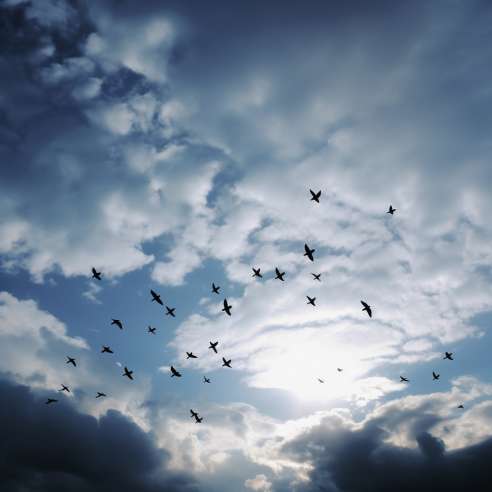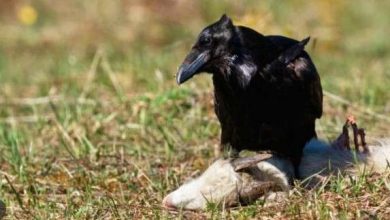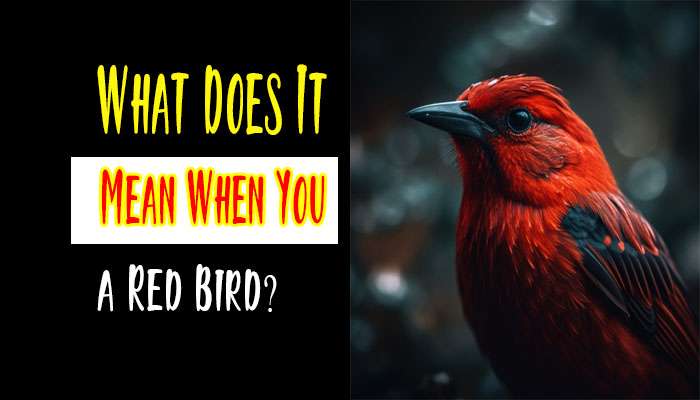Are Birds Cannibals? Unraveling the Avian Diet Secrets
Welcome, fellow bird enthusiasts! As an avid ornithologist with an unquenchable passion for birds, I have spent countless hours observing and studying these incredible creatures. Today, I am excited to take you on a journey through the intriguing world of avian behavior.
One particular question has often piqued my interest and sparked curiosity among bird lovers: Are birds cannibals? This article will explore the phenomenon of cannibalism in birds, diving into the reasons behind such behavior and its impact on avian populations.
The Diversity of Avian Diets
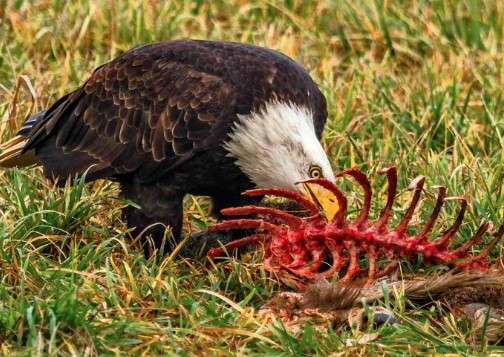
Before we delve into the intriguing topic of cannibalism, let’s first understand the incredible diversity of avian diets. Birds are an incredibly varied group, with over 10,000 different species scattered across the globe. Each species has evolved unique feeding habits to adapt to their environment and fill specific ecological niches.
- Herbivorous Birds: Some birds, like finches and parrots, primarily consume plant matter. Their beaks are specially adapted to crack seeds or extract nectar from flowers.
- Carnivorous Birds: On the other end of the spectrum, birds of prey, such as eagles, falcons, and hawks, are strict carnivores, hunting and feeding on small mammals and other birds.
- Insectivorous Birds: Many birds, like warblers and flycatchers, feed on insects, helping to control insect populations and maintain ecological balance.
- Omnivorous Birds: Many bird species are omnivores, consuming a mix of plant and animal matter, such as fruits, seeds, insects, and small vertebrates.
Are Birds Cannibals?
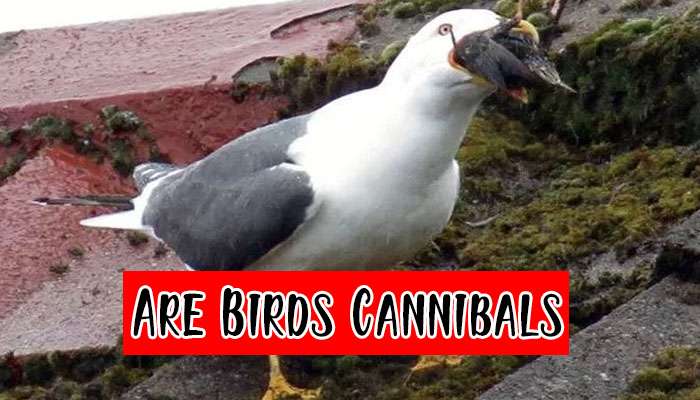
Now, let’s address the question that brings us here today: Are birds cannibals? The answer may surprise you. Yes, some bird species do exhibit cannibalistic behavior, although it is relatively uncommon. Cannibalism in birds can be broadly categorized into two types:
- Intraspecific Cannibalism: This type of cannibalism occurs when birds of the same species prey on each other. Intraspecific cannibalism is often observed in overcrowded or stressful environments, where competition for resources and nesting sites is fierce.
- Interspecific Cannibalism: Interspecific cannibalism involves birds preying on other species. This behavior is more infrequent and usually occurs when an opportunist bird takes advantage of a weaker or injured individual of another species.
The Reasons Behind Cannibalistic Behavior
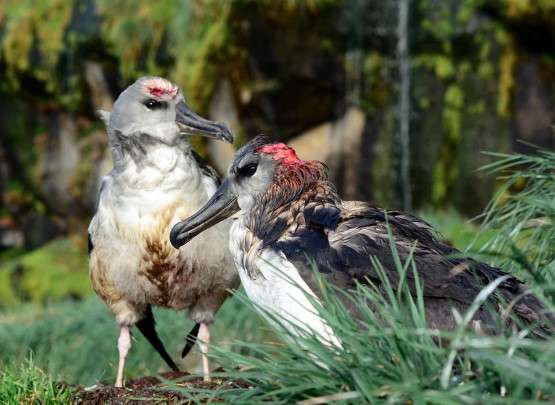
As an ornithologist, I have encountered several factors that drive birds toward cannibalism. Understanding these reasons can shed light on the complexities of avian behavior.
- Scarcity of Food: When food becomes scarce, especially during harsh weather conditions or ecological imbalances, birds may resort to cannibalism as a survival strategy.
- Territorial Disputes: Dominant birds may resort to cannibalism to eliminate competition for nesting sites or territories.
- Parental Behavior: Some birds may eat their own offspring if they perceive them as sick or weak, reallocating valuable resources to healthier chicks.
- Accidental Cannibalism: Cannibalism can sometimes occur accidentally during aggressive interactions, leading to fatal injuries.
Cannibalism Among Iconic Bird Species
While cannibalism is not a common trait across all bird species, there are some notable cases where this behavior has been observed.
1. The Great Blue Herons

These magnificent birds, known for their towering height and graceful flight, are remarkable fishers. However, they have been documented preying on their own chicks in times of food shortage, a behavior observed in various heron colonies.
2. The Northern Goshawks
As formidable predators, Northern Goshawks are skilled at hunting other birds. In rare instances, they have been observed feeding on the chicks of other raptors.
3. The Adélie Penguins
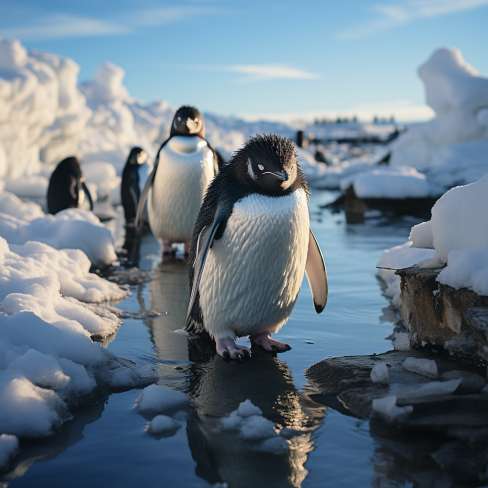
Living in the harsh conditions of Antarctica, Adélie Penguins are dedicated parents. Yet, when resources are scarce, they may resort to cannibalism, particularly among chicks.
The Implications on Bird Populations
Cannibalism, though not widespread, can have significant implications for bird populations. In certain cases, it may even play a role in regulating population numbers and preventing overcrowding.
- Population Control: In instances where birds prey on their own species, cannibalism can act as a natural form of population control, reducing competition for resources.
- Survival of the Fittest: By eliminating weaker individuals, cannibalism ensures that the strongest and most adaptable birds pass on their genes to the next generation.
- Conservation Concerns: In cases where cannibalism is induced by environmental stress or habitat degradation, it can be an indicator of larger ecological issues.
FAQs
Are there any bird species that exclusively feed on other birds?
While there are predatory birds that primarily hunt other birds, no bird species exclusively relies on cannibalism for sustenance.
Is cannibalism common among pet birds like parrots or canaries?
Cannibalism is not a common behavior among pet birds kept in captivity. It is more prevalent in the wild under specific circumstances.
Does cannibalism impact the overall health of bird populations negatively?
While cannibalism can affect individual populations, it plays a role in maintaining ecological balance and preventing overpopulation.
What happens if a bird eats chicken?
If a bird eats chicken, it would not necessarily cause any significant harm to the bird. Chickens are a common domesticated bird, and their meat is a part of the natural diet for many carnivorous and omnivorous bird species.
However, it’s important to note that the digestive systems of different bird species vary, so not all birds may efficiently process and digest chicken meat.
Which birds eat other birds eggs?
Some bird species that are known to eat other birds’ eggs include crows, magpies, jays, and some gull species. These birds are often opportunistic feeders and may raid the nests of other birds to consume their eggs.
Can chickens become cannibalistic?
Yes, under certain circumstances, chickens can exhibit cannibalistic behavior. This usually occurs when there is overcrowding, poor living conditions, lack of proper nutrition, or when chickens are stressed.
Cannibalism among chickens can lead to serious injuries and even death, as they may peck at each other’s feathers, skin, and flesh. To prevent cannibalism, it’s important to provide adequate space, proper nutrition, and environmental enrichment for chickens in poultry settings.
Conclusion
As we conclude this avian adventure, we have discovered that, indeed, some birds are cannibals. However, it is crucial to remember that cannibalistic behavior is a rare and often context-specific occurrence. It is a testament to the complex nature of bird behavior and the various factors that influence their interactions.
As a bird lover and ornithologist, I am continuously awed by the marvels of the avian world. The more we understand and appreciate birds, the better equipped we are to protect and conserve them. Let us strive to cherish these feathered wonders and ensure their habitats remain thriving for generations to come.
Source:
